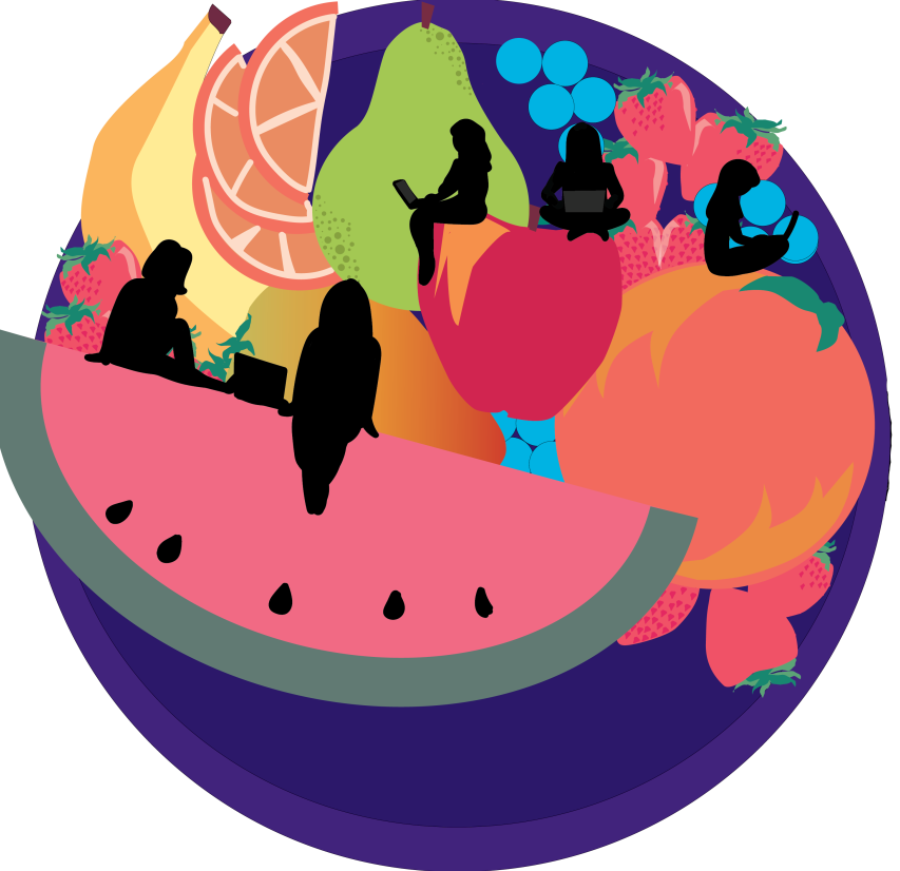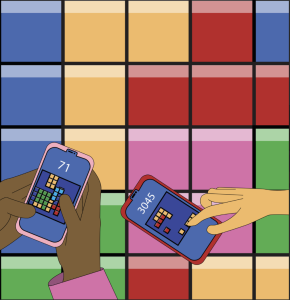Bowie Cares for student hunger
Counselors fight student food insecurity with packaged snacks to enable easier learning
The ‘Bowie Cares’ program gives out free packaged snacks for teachers to keep in their classrooms for student utilization.
March 7, 2022
Senior Mia Brelsford’s stomach growled.
Her teacher droned on in AP macroeconomics class about supply and demand graphs, and all she could keep her mind on was her persistent hunger.
She forgot to eat breakfast this morning.
“It is hard to focus when you are hungry, as your mind wanders to food instead of what the teacher is lecturing,” Brelsford said. “Many students are able to bring their own snacks to have during classes to curb their hunger but, for some, snacks are not as accessible.”
Learning on an empty stomach at any time of the school day can be detrimental to students’ performance in class, according to the National Education Association’s (NEA) nutrition programs. In a study published by the American Journal of Clinical Nutrition, pediatrics displayed the negative effects of student food insecurity, which is the state of not having consistent access to nutritious food, on their learning ability.
“Hungry children have lower math scores, are more likely to repeat a grade, come to school late, or miss school entirely,” NEA said in the article.
To act as a source for snacks to hold students over and keep them focused in class, the counseling department, specifically counselor Hunter Ruffin, pushed forward a program titled ‘Bowie Cares’ to package snacks free for teachers to keep in their classrooms for student utilization.
“Our goal was to make food resources and feminine hygiene products more available to students in the academic wing,” Ruffin said. “You know, the counselors always have snacks and meals in our offices, but a lot of students don’t know about that or they don’t want to come all the way down here because it’s kind of far away, so we just wanted to get enough snacks packaged to place them in every classroom.”
Located in C102, there are around 100 snack bags that are available for students to take or for teachers to pick up for their classrooms that students can access during class time. By giving the teachers the ability to openly give students snacks when needed, Ruffin believes they will combat distraction in learning and lead kids to better grades.
“I think the ones in the classrooms are best used as an instructional tool for teachers if they notice a kid is super distracted,” Ruffin said. “If they find out that they missed lunch or breakfast, they now have something to offer, a snack break, to help recharge a little bit, and that way, can get back to learning; certainly, anytime a kid misses a meal, it’s going to be a lot harder to focus and we just want that to not be a barrier.”
In an article from Better Mind by Dr. Julie Schwartzbard, she claims that certain factors affect students’ ability to focus in class, hunger and fatigue being two of them, as well as a poor diet to go along with not eating enough.
“Hunger is tied directly to low blood sugar which quickly leads to fatigue and low energy levels, which all wreak havoc on your ability to focus,” Schwartzbard said in the article. “Processed foods lead to blood sugar spikes and crashes that destroy focus, and if you don’t get essential vitamins, your ability to concentrate will suffer and it will worsen over time.”
According to Brelsford, these effects of persistent hunger can be present in her day-to-day life, especially as she navigates through a confusing school year coming off of the pandemic’s online schooling.
“The mornings in which I sleep through my alarm, I rush to get out the door in time to make it to class and I skip breakfast, ending up going to school on an empty stomach,” Brelsford said. “My stomach begins to growl and it becomes hard to focus because I’m already thinking about when I’ll be able to get lunch by first period and this all just adds to the stress and difficulty in focusing.”
In addition, for senior Vanessa Nguyen, snacks provided by the school in a program like Bowie Cares is extremely beneficial to the quality of her learning when she misses time to eat.
“I know as a student having an empty stomach or being dehydrated has decreased my performance in school, because I would fixate on my hunger,” Nguyen said. “Sometimes I get fatigue or have headaches when I don’t get snacks throughout the day, so having access to snacks through Bowie benefits my health and how I perform in school.”
The National Education Association claims that providing school meals benefit both the students and the success of the school, as students utilizing school snacks and meals cost less than if they’re paying for year-long a school meal plan. They include that this statistic can be very important for schools in need of saving money, which Austin Independent School District (AISD) has proved this year through potential schedule changes that they are discussing.
“Since parents and counselors provided for the program, it’s a great opportunity for students to eat in school without the district having to fund for and provide meals,” Nguyen said. “I think most of the community is aware of the issues the district has with funding sometimes, so having a program like this definitely will help them combat those issues.”
In Nguyen’s opinion, the program not only gives her the chance to succeed better in class, but also opens a door to aiding low income students especially during the pandemic.
“I think this program is a great resource for students and staff because there isn’t always accessibility for snacks throughout the day for a lot of the Bowie community,” Nguyen said. “Bowie Cares shows that the school really cares about our health and well-being during difficult times such as this pandemic, especially for students who struggle with getting food on the table; having this resource will inevitably take a burden off of their shoulders when coming to school, and I think a lot can come from this program.”
From an adult perspective, eating throughout the day gives students a chance to fully comprehend the information given to them in class without focusing on their persistent hunger, which is what Ruffin had in mind when leading the Cares project this semester.
“I’m just hoping that students are more engaged throughout the school day,” Ruffin said. “I certainly don’t want hunger to be a barrier to accessing the material, and if we want to meet that need, then I think providing some sort of food can be something to help them get through the day.”
For increasing student health in school, the Healthy Schools Campaign (HSC) emphasizes the positive impact school-provided food resources can have on students’ learning, serving as a direct correlation to the origin of the Bowie Cares project and the purposes behind it.
“A vast body of research shows that improved nutrition in schools leads to increased focus and attention, improved test scores, and better classroom behavior,” HSC said in an article. “School food can also increase school connectedness and reinforce to children, families, and the community that students’ health and well-being are valued.”
A project like Bowie Cares ultimately gives the school power to emphasize the importance of eating to further kick-start students’ ability to learn, while battling the ongoing issue of student hunger diminishing student performance, according to Brelsford.
“I think that no matter if you already have access to the resources that Bowie Cares provides or if you are in need of these resources, we can all benefit from equal opportunities to food resources,” Brelsford said. “When we lift others up and help them reach their highest potential, we too can be benefited.”










